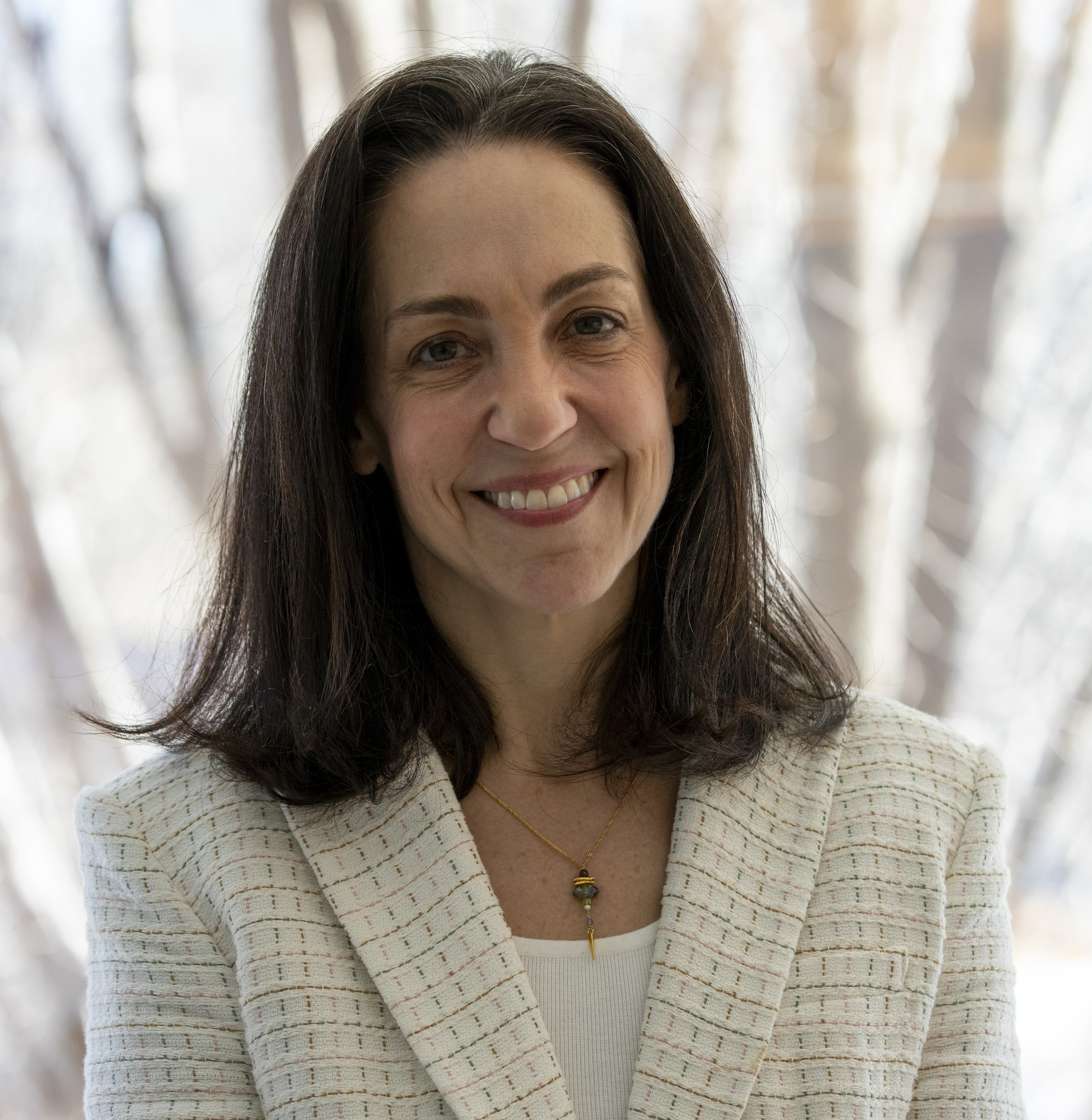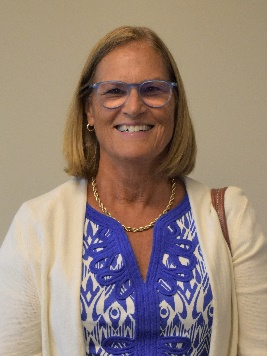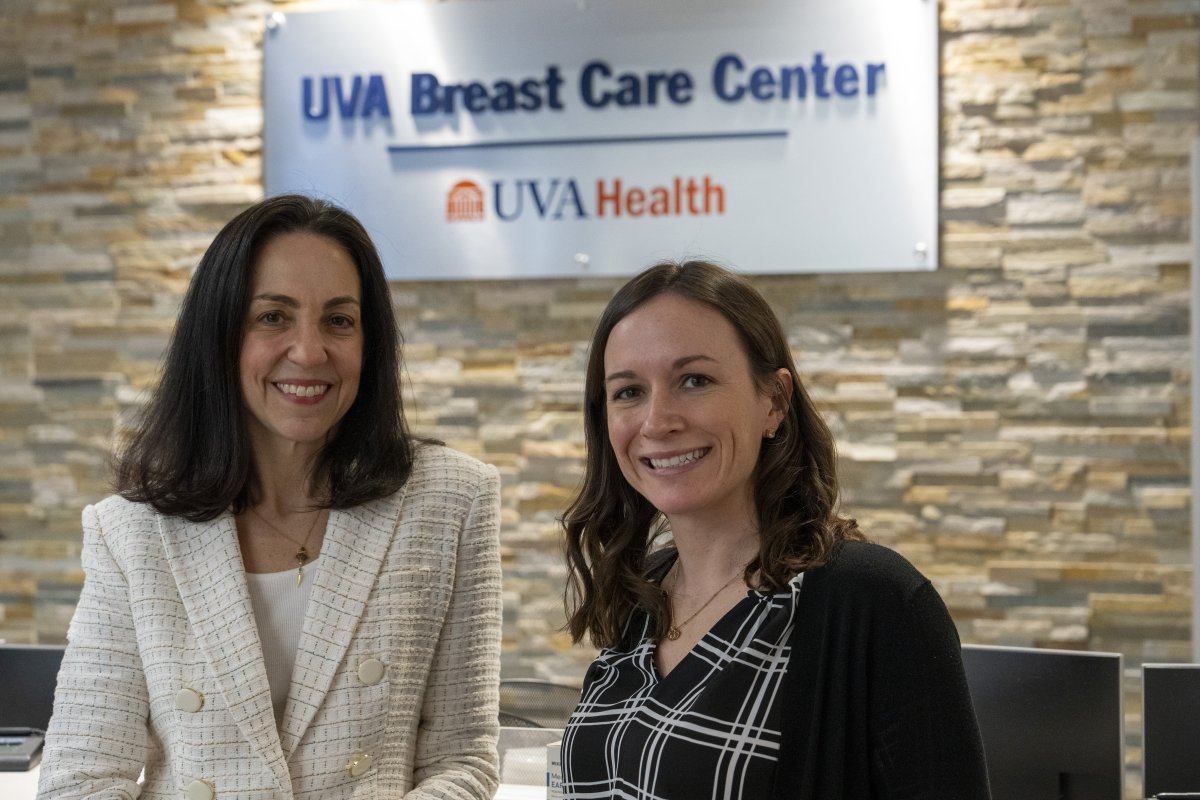Tailored Treatments
When the UVA Health Breast Care Center opened in 2020, it brought preventive care, imaging, treatments, and clinical trials for breast cancer patients together under one roof. In addition to increasing convenience and comfort, this move has catalyzed treatment collaborations, groundbreaking research, and the development of more individualized therapies.
The Breast Care Center allows patients to meet with their entire care team—specialists in surgical oncology, medical oncology, plastic surgery, radiology, physical medicine, rehabilitation, and genetics—often in one visit. Previously, many of these services and specialties were located in different buildings across the UVA Health complex.
“The way we designed the space allows for a multidisciplinary approach and physician collaboration, which is how to provide the best care and ensure the best outcomes for patients,” said Shayna L. Showalter, MD, a professor of surgery in the Division of Surgical Oncology specializing in breast cancer.

Dr. Showalter added a personal example: “It’s so wonderful to come into the clinic at the beginning of the day and be able to review the images of all the patients that I am going to see that day with a radiologist who is specifically trained in breast imaging. Right next door is the medical oncologist, and down the hall is the plastic surgeon. This setup allows me to talk to my colleagues several times a day about our shared patients. The physical center really facilitates multidisciplinary care, which is how breast cancer needs to be treated in 2025.”
For breast cancer survivors like Elizabeth “Lilliboo” Cronly, it’s Dr. Showalter herself who’s elevating breast cancer care.
“When I was diagnosed with breast cancer six years ago, I was scared. But Dr. Showalter told me not to worry, to let her team do the worrying—and they really took care of me,” said Cronly, an emeritus member of the Cancer Center Advisory Board. “She’s not just a great doctor; she’s a wonderful person. She truly cares, and I think it shows in everything she does.”

In addition to seeing patients, Dr. Showalter designs and runs clinical trials aimed at pushing the field toward more precise and personalized treatment options. Cronly benefited from one of Dr. Showalter’s clinical trials.
“I had the dream team,” said Cronly, referring to the Precision Breast Intraoperative Radiation Therapy (IORT) clinical trial in which she participated. Dr. Showalter led the trial in collaboration with her husband, Tim Showalter, MD, a radiation oncologist at UVA Health.
Cronly has since donated to UVA Cancer Center’s breast cancer research program.
Dr. Showalter is deeply grateful for Cronly's kind words and philanthropic contributions. “Mrs. Cronly is a staunch advocate for breast cancer research, and we are truly appreciative of her ongoing commitment. Her generosity will enable us to provide the most advanced and personalized care to our patients.”
Precision Medicine Is the Future
In the Precision Breast IORT protocol, advanced CT image guidance is used to more accurately focus radiation to the area in the breast where the cancer was removed while avoiding radiation to healthy tissue and organs. Compared to traditional whole breast irradiation, which requires patients to undergo weeks of daily radiation treatments, the Precision Breast IORT protocol allows for just one radiation treatment at the time of breast surgery. The goal is to maximize the patient’s quality of life and decrease adverse side effects. The trial is now closed, and Dr. Showalter and her team are analyzing the results.
Dr. Showalter also leads a multi-site, phase III clinical trial that aims to improve both over- and under-treatment in older breast cancer patients and to replace a one-size-fits-all model. It's called the Pre-Operative Window of Endocrine Therapy to Inform Radiation Therapy Decisions in Older Women with Early-Stage Breast Cancer: The POWER II Trial. Trish Millard, MD, an associate professor in the Department of Medicine, Division of Hematology and Oncology, serves as principal investigator for the study’s UVA Health site. This trial is currently enrolling patients at UVA Health and Virginia Commonwealth University; there are plans to expand it to other sites soon.
“This trial has the potential to result in a paradigm shift in the way we treat older women with early-stage breast cancer,” said Dr. Showalter.
The usual treatment for older women with early-stage breast cancer is lumpectomy followed by radiation therapy and seven to 10 years of adjuvant endocrine therapy. Dr. Showalter's trial focuses on giving women three months of endocrine therapy before surgery to allow them to assess their tolerance and inform decisions for other treatments.
Dr. Showalter is also collaborating with a team of surgeons and biomedical engineers to develop a model for quickly testing how an individual patient’s tumor will react to radiation and endocrine therapy.
“We are working at the intersection of surgery, pathology, and engineering to create a novel system that could dramatically change how we treat cancer,” said Dr. Showalter. “This method will eventually allow doctors to offer individualized treatments to patients based on their specific tumor.”
The ultimate goal of Dr. Showalter’s trials and exciting research efforts is to improve outcomes and minimize side effects for breast cancer patients.
“They do such wonderful work,” said Cronly. “They’re working hard to get rid of breast cancer completely, and who can argue with that?”

